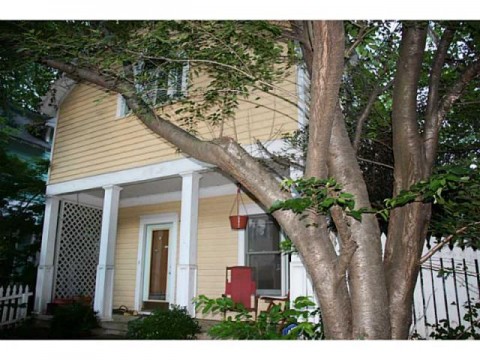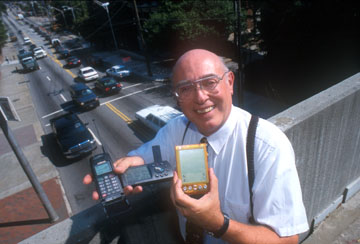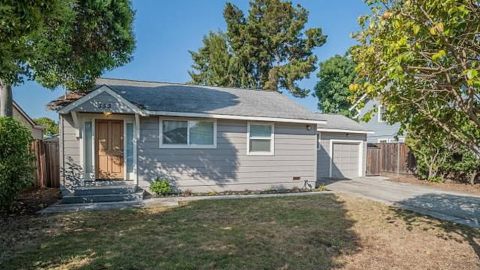Last month, Sarah Lacy of Pando Daily posted an article titled “Memo to non-Valley, non-NYC ecosystems: No one you want cares about the cost of living.”
Read the whole thing. But here’s her thesis:
“There’s a reason I never talk up taxes or cost of living as reasons other startup ecosystems will take off: Because none of the people who really matter give a [redacted] about these things…
Ecosystems should just stop making this argument. They’re never going to get top entrepreneurial talent, and will only attract those people not aiming high enough, who are motivated by saving money, not making it, and not building something great — the mercenaries, rather than the missionaries.”
We got into a bit of a Twitter conversation about this, and my mental wheels started spinning on what has become this blog post.
So: Sarah’s thesis is, slightly edited, is “None of the people I know care about these things.”
Paul Freet’s response is “Nonsense, cost of living is one of many advantages for Atlanta.”
Me: They’re both right.
 Most of my readers are too young to remember New Yorker film critic Pauline Kael, wrongly but accurately misquoted as: “How could Nixon have won? Nobody I know voted for him.” (This was in 1972, when Nixon won in a historic landslide with 520 electoral votes and an all-time-record 61% of the popular vote. George McGovern carried the People’s Republic of Massachusetts and the District of Columbia for 17 electoral votes.) But in Kael’s elite Manhattan social circle, I suspect McGovern’s vote was essentially 100%.
Most of my readers are too young to remember New Yorker film critic Pauline Kael, wrongly but accurately misquoted as: “How could Nixon have won? Nobody I know voted for him.” (This was in 1972, when Nixon won in a historic landslide with 520 electoral votes and an all-time-record 61% of the popular vote. George McGovern carried the People’s Republic of Massachusetts and the District of Columbia for 17 electoral votes.) But in Kael’s elite Manhattan social circle, I suspect McGovern’s vote was essentially 100%.
I’ve never met Sarah Lacy, but I follow her blog posts. She’s a good writer. Southern girl who is now completely immersed in the Silicon Valley/South of Market zeitgeist, where everyone is salivating over the Next Big Deal, and every brilliant 23-year-old is being hailed as the next incarnation of Mark Zuckerberg, if not Steve Jobs.
Good for her. It makes for entertaining reading. It also has very little to do with the 99% of the country that’s outside the Bay Area.
We’re Not Silicon Valley
I’ve been preaching for (yikes!) four years about how Atlanta is not Silicon Valley, and that’s okay.
I’m not alone; you should read Vivek Wadwha’s recent article that Jason Pontin published on “Why Silicon Valley Can’t Be Copied.”
Okay, fine. Sarah and I probably agree on that. Where I disagree (and I’m picking on Sarah as an example of a prevalent mindset; this post isn’t about her) is the assumption that, if you choose to build a startup in Atlanta, you “will only attract people not aiming highly enough.”
Yeah. People like Jeff Sprecher, the Atlanta entrepreneur who just bought the New York Stock Exchange.
Or Chris Klaus, who took ISS public and then sold it to IBM for $1.3 billion.
Or Tom Noonan, who was CEO of the same ISS deal, and just recently did it again, selling JouleX to Cisco for $107 million.
Or Mike Cote, who sold SecureWorks to Dell for $650 million.
Or Alan Dabbiere, who is preparing to take AirWatch public for a billion dollars or so.
Or Tripp Rackley, or David Cummings, or Dave Williams, or Reggie Bradford.
Or Paul Judge, or Wayt King, or Bert Ellis, or Glen Robinson (R.I.P.).
Or David Gould, or Said Mohammadioun, or Glenn McGonnigle.
Or Dennis Liotta, or Ray Schinazi, or Jay Yadav.
Or, heck, Ted Turner and Sara Blakely and Lonnie Johnson.
That list is from memory. I’ve probably certainly left some people out. (Sorry, it wasn’t intentional.) But even this subset represents billions of dollars of shareholder value created by these Atlanta entrepreneurs.
This debate goes all the way back to Guy Kawasaki’s infamous visit to Atlanta in 1999, where he advised local startups: “If you want to make it in the movies, you go to Hollywood. Theatre: New York. Internet: Move to Silicon Valley.”
Well, all the Atlanta-based Internet entrepreneurs on my list above made their millions in Atlanta after Kawasaki gave that advice. And our ecosystem is way broader than just the Internet. Look around the ATDC floor in the Centergy building. Yep, you see some great Internet companies. But you also see in vitro cell diagnostics, and electronic medical records, and computer gaming, and chemical sensors, and touch-sensitive display hardware, and robotic sewing machines, and ultrasonic water meters, and fleet management software, and video processing, and more.
You know what else you see?
Grey hair.
(Or, in a few cases, no hair. Hi, Steve!)
Very few Atlanta technology entrepreneurs — heck, very few entrepreneurs anywhere — made their millions while in their twenties. (And we do have Chris Klaus and Tripp Rackley and Tim Dorr and Jeff Arnold and Raj Rajan, so we’re not exactly bereft of successful twentysomethings.)
The Mark Zuckerbergs and David Karps of the world get magazine covers precisely because they’re unusual. “Look at this kid, hardly old enough to shave, and he can buy Peru!”
Good for them! They earned their billions, and I hope they enjoy them. But “luck” is not a strategy. And basing a regional economic development strategy around twentysomething billionaires is like basing your electrical power grid on lightning strikes.
Most — not all, but most — successful entrepreneurs have experience under their belt before launching into their new venture. Sometimes it’s a career in Corporate America. Sometimes it’s a failed previous venture. Sometimes it’s military service. Vivek Wadwha has studied the data, and claims “the vast majority of successful entrepreneurs — 75 percent — have more than six years of industry experience and half have more than 10 years when they create their startup.”
(I’m usually pretty happy if I just have Vivek on my side, but you know who else agrees with us? The Harvard Business Review: Entrepreneurs Get Better With Age.)
As a career mentor told me when I was a bright young twentysomething myself: “Stephen, it’s great to see that you have so much energy that you’ll knock down a brick wall to get to your goals. But, occasionally, you should ask someone older if they know where the doorknob is.”
So if the “average age of a successful entrepreneur in high-growth industries such as computers, health care, and aerospace is 40,” it’s not surprising that they have some grey hair.
You know what else fortysomethings have?
Spouses.
Kids.
Mortgages.
College savings.
Retirement plans.
When you reach a certain point in life, sharing an overpriced apartment with three other coders and accumulating take-out pizza boxes just loses its charm.
So you and your spouse want to buy a house and settle down and raise a couple of kids and a dog? Sarah Lacy might call that “not aiming high enough.” I call it “being a grownup.”
Let’s Look at Houses.
In Mountain View, you can buy this 2 bedroom, 1.5 bath, 960 sq. ft. 70-year-old cottage on 1/6th of an acre for $1.1 million. It’s a lot better than a São Paulo favela… but, really, is that where you want to raise your kids?

Or, in my neighborhood in Midtown Atlanta, that same $1.1 million would buy you this 5 bedroom, 5.5 bath, 4100 sq. ft. house. Great neighbors, walking distance to Georgia Tech and Piedmont Park, great back yard for the kids and the dogs, pretty much the definition of successful urban living.

Or you prefer the suburbs? A little ways north of Atlanta, in Alpharetta (the “Technology City of the South“), your $1,100,000 will buy you this: two full acres with 5 bedrooms, 5+ bathrooms, 10,000 square feet, a wine cellar, a garage, and a pool. Some of the best schools in the Southeast. Nice place. Twelve times the acreage and ten times the house as our friends in Mountain View. (And a pool. Kids like pools.)

Maybe a million bucks is a bit much for you right now?
Also in Alpharetta, you could buy this 3 bedroom, 3 bath house on a full acre, with space to add a pool in a couple of years, for $360,000. Yep, one-third the price for way more house than in Mountain View.

Or maybe you kinda like that Mountain View bungalow. Here’s a decent match for it — a little bigger, with an extra bathroom, and a whole lot newer — in one of Atlanta’s gentrified hipster districts.
$157,000. One-seventh the price of the Mountain View house. Seven-to-one ratios get my attention.
I could keep cruising Trulia Zillow, but I think my point has been made. It’s not just the obvious fact that the cost of living is lower in Atlanta… it’s a whole lot lower. To the point where you live your life differently in Atlanta than you do in the Valley.
The Intangibles
Which leads to the factors that don’t fit well into a spreadsheet, but make a huge difference in your quality of life.
You know what’s cool when you’re 23? Going to a party where everyone is the same age, and more or less the same background, and working in more or less the same industry, and talking about the latest TechCrunch cover story. It’s exciting!
You know what’s great when you’re 43? Going to a party where you’ve got every age and race under the sun, working in all sorts of different industries and non-profits and what-have-you, and talking about your kids, or your boat, or the Braves’ prospects this year, or the new additions to Piedmont Park. And never, ever having to worry about asking your friends to sign a “Friend DA.”
Atlanta has a (very) substantial technology ecosystem, but it’s not a technology monoculture. That’s important.
If you’re 23 years old and think you need to be in San Francisco to play major league ball… Delta is ready when you are. Say hi to Stammy for me.
But I’d argue that, except in very specialized circumstances, you’re wrong. There are a lot of “painkiller” problems out there that aren’t Social/Local/Mobile apps. (Check out Nikola Tesla pitching to Silicon Valley VCs.)
Some of those problems are decidedly unsexy, like ensuring ammonia buildup doesn’t slow the growth of chickens in poultry houses. Or monitoring hospital bills for erroneous charges. Or helping banks combat phone fraud.
Dig into one of those problems, start talking to customers, and build a B2B solution. You probably won’t get much coverage from Pando Daily, but you can build one heck of a successful business, employ some great people, create a lot of wealth, and make a difference in the world.
And if you did move to Silicon Valley? The median actor in Hollywood is a waiter. The median Silicon Valley entrepreneur is broke and disillusioned. If you’re 43 years old, and haven’t grabbed the brass ring of a multi-million dollar exit, and you’re still living in Mountain View in a million-dollar crackerbox… well, you’re just a darned fool.
You should be in Atlanta. Where we build startups for grownups.
Addendum: I’ve been asked to make this post available as a PDF for download. Here it is.



Great piece, Stephen. The best argument is the evidence of all the entrepreneurs who have started successful ventures in Atlanta. To add a couple of names to your impressive list – mostly to encourage your other readers to add more: John Imlay of MSA and Dennis Crumpler of Sales Technologies and Xcellenet, which both had lucrative exits.
Oh, if we go back in time, there are lots more success stories! I was trying to focus on post-1999 (when Guy Kawasaki told us all to leave town)…
Agree with most…Growing a company and raising a family here is preferred. However, starving in ATL is cheaper but still starving. Access to capital still wins.
Well said, Stephen. I have lived in both places, built successful businesses in both places, and I think Atlanta is a better place to do business on average. The Bay Area has a lot of appeal, but building a business there is really expensive and, in my experience, the operating talent is really diluted because everyone with a half-baked business plan gets funded there. Silicon Valley needs to keep reminding us that it is the start-up mecca, but recent stats show that millionaires are starting the slow, steady pilgrimage out of California with its 62% all in tax rate. Moreover, this is not a zero-sum game… we can build a great technology ecosystem here in Atlanta even if Silicon Valley continues to be the place many entrepreneurs — and too much capital — flock to.
People’s Republic of Massachusetts? An otherwise interesting article mired by an unnecessary right-wing dig at a state which Georgia lags in pretty much every important statistic other than lower cost-of-living. Do your personal political opinions really belong in an post about start-ups?
*Laughing* I’m about as far from right-wing as I am from left-wing. As far as Massachusetts outperforming Georgia… Delta is ready when you are.
Starving entrepreneurs in my mind are hungrier no matter what the age. And, a false sense of accomplishment is not winning. The bottom line is no matter where you are it is all about the talent and their eagerness to do something great irregardless of the financial outcome. Generally you find a lot more of these types in the tier 1 markets. The ATL is starting to make its mark but just much slower than needed to lure the city’s future entrepreneurs, money and class A talent. There is still a lot of work to be done by the city’s leaders to build on this momentum.